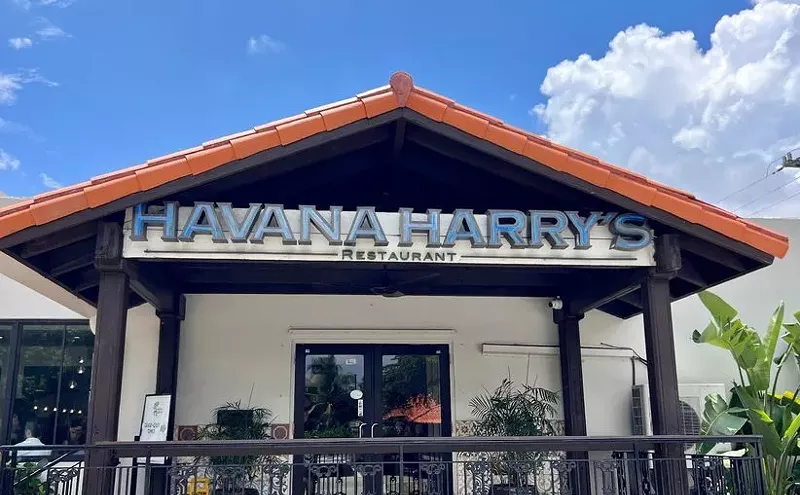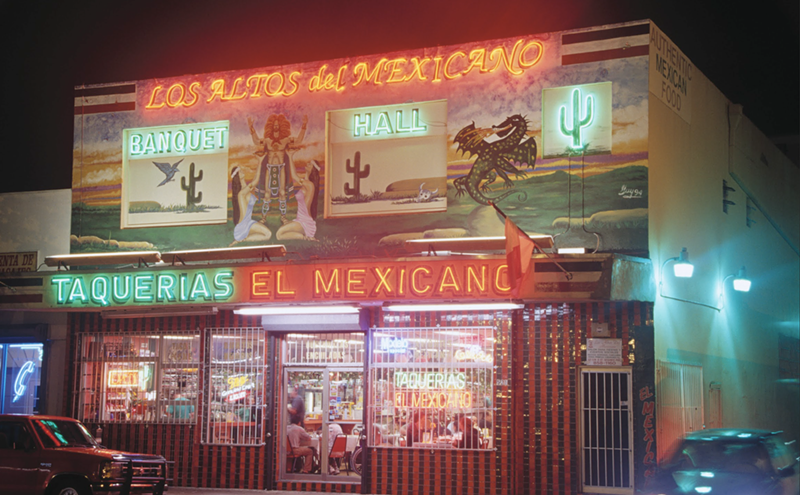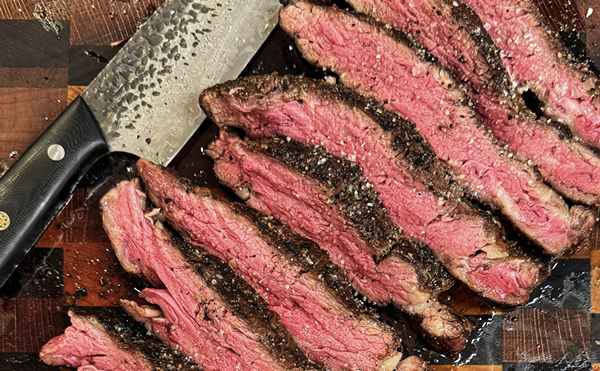The hot pot's history stretches back nearly a thousand years to the Mongolian steppe, where nomads would simmer any proteins or vegetables they could gather in a communal vessel filled with a simple broth. As time passed, the method spread across Eurasia. Some versions offered pungent broths flavored with wild herbs and mushrooms. Others included pickled vegetables, which create a sour broth that pairs well with offal and fatty meats. It spread to Japan in the form of shabu-shabu, where paper-thin slices of meat and a rainbow of vegetables are swished through a scalding broth fortified with seaweed.
Today, southwest China's Sichuan province and neighboring Chongqing are perhaps best known for their hot pots that boast a deep crimson hue thanks to bright red chilies and flecked with numbing Sichuan peppercorn.
Maybe the best place to find it right now is at North Miami Beach's CY Chinese Restaurant. The strength comes from the soup, which begins with a ladleful of rendered beef fat that's dosed with three kinds of chilies, Sichuan peppercorns, cinnamon sticks, garlic, ginger, star anise, fermented black beans, and chicken stock fortified with garlic and ginger.
Of course, all of this comes at a cost. At CY all the soups, meats, and proteins come a la carte. So you can get sliced pork, sliced fatty beef, quail eggs, and sliced lotus root for $6.95, $8.95, $5.95, and $5.95, respectively.
Find a similar setup in Brickell's Four Ambassadors, where the amorphous restaurant backed by Chinese businessman Shanjie Li once called Da Tang Unique has again put its menu to the knife, renaming itself Da Tang Zhen Wei Fang and dedicating a hefty portion of its menu to what the restaurant bills as "French-style hot pot." Again, ordering is done a la carte, with soup bases running between $5.95 and $6.95 and proteins and vegetables starting at $5.95 all the way up to $26.95 for a portion of Australian wagyu beef. Other than an ornate, high tea-style presentation, the French influence is hard to find; nevertheless, Da Tang
Two Miami-area restaurants offer all-you-can-eat hot pots. Hot Mama Kitchen (3207 NE 163rd St., North Miami Beach; 954-298-5040) sells one for $27.99. Chinese Guy Chi-Town Restaurant (113 SW 107th Ave., Miami; 786-763-2008) offers its hot pots for a flat $25.95. Chinese Guy's first restaurant on West Flagler Street near 104th Avenue opened in early 2017 as part of a wave of more traditional Chinese restaurants launching in Miami in recent years. Opened by Tiajin natives and husband and wife team Kun Bao and Yanan Cai, who met in Miami while attending FIU, the place was constantly packed with students. The overflow became a problem and the restaurant will soon close. Fret not though — the original dishes plus an expanded noodle section are on the menu at Chinese Guy Chi-Town.
The Chi-Town name stems from university or shopping center dining halls in China where every manner of the country's cuisine is available from different stalls. "You might call it a food court, but it's much, much more, and the food is far better," Bao explained.
Ordering at Chinese Guy Chi-Town is a cinch. Select a broth or two from a checklist alongside a bevy of meats and vegetables dim sum-style. Soon carts begin pulling up to your table and broths are offloaded onto in-table burners alongside heaps on shrimp balls filled with sweet pork, curls of frozen lamb, knots of homemade noodles, and the half-okra, half-cucumber vegetable called winter melon.
For the uninitiated, one of the all-you-can-eat options might be the easiest way to dip a toe into the water, or broth, as it were. Yet it also creates a conundrum in that waste is highly frowned upon in these establishments. So much so that at Chinese Guy, there's a stern illustration of a chef commanding you not to waste good food. The solution might be to just ask the kitchen for one of those fish balls rather than a whole order. If the slightly salty taste and bouncy texture delight you, as they should, there's no danger in placing a full order.















